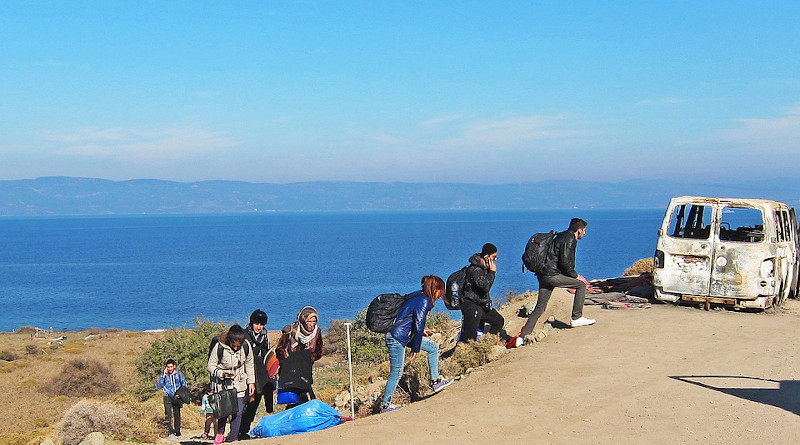Europe Braces For New Refugee Influx From Turkey
European countries closest to Turkey are beefing up their border security, after Turkey said it would no longer try to stop migrants and refugees from heading into Europe.
By Hamdi Firat Buyuk
European countries close to Turkey were on the alert on Friday after Ankara said it was opening its borders for migrants and refugees who want to leave the country and cross into Europe.
Since Ankara announced the decision, thousands of mainly Middle Eastern refugees have flocked to cities close to the border with Bulgaria and Greece as well as to ports on the Aegean Sea.
Turkish media reported that refugees were heading to border cities in buses, taxis and other forms of transport. Because of the demand, some bus companies have introduced new lines.
The prospect of another massive wave of migrants and refugees has alarmed European countries closest to Turkey, starting with Greece and Bulgaria.
Both governments have announced that they will tighten border security on both land and sea. The Bulgarian Defence Ministry has deployed a thousand more soldiers on the Turkish border.
Greece has not sent additional troops to the border but said it has authorised its border guards to stop refugees from entering, after Greek Prime Minister Mitsotakis briefed German Chancellor Angela Merkel on border security matters.
According to one independent media outlet, Biz10, the Turkish authorities released refugees from prison and brought them to the Greek border in police vehicles, though this is unconfirmed.
The Turkish Foreign Ministry said Turkey had not changed its overall refugee policy but that refugees were on move since they were worried because of the ongoing crisis in the region.
“The EU will consider all necessary measures to protect its security interests,” Josep Borrell, EU foreign affairs chief wrote on twitter, underlining the continued importance of the 2016 EU-Turkey refugee deal.
NATO-member Turkey made the announcement about opening the border after dozens of its soldiers were killed in a Syrian government assault on the northern rebel enclave of Idlib.
NATO Secretary General Jens Stoltenberg said that NATO stood with Turkey and condemned Syria and its Russian ally for escalating the situation around Idlib.
President Recep Tayyip Erdogan spoke to German Chancellor Merkel and French President Emmanuel Macron and was due to talk to US President Donald Trump on Friday night.
President Erdogan also talked to Russian President Vladimir Putin, as Russia and Turkey continued to blame each other for the crisis.
The Russian defence ministry said the Turkish soldiers had been killed alongside Syrian rebel fighters in the Balyun area where, it said, they were attacking Syrian government forces. The Turkish defence ministry denied this.
Idlib has become the overcrowded home of more than 4 million displaced Syrian refugees and Turkey has established military outposts in the region. The Damascus government calls these outposts illegal.
At least 33 Turkish soldiers died in the airstrike on Idlib, and the final death toll is expected to increase.

